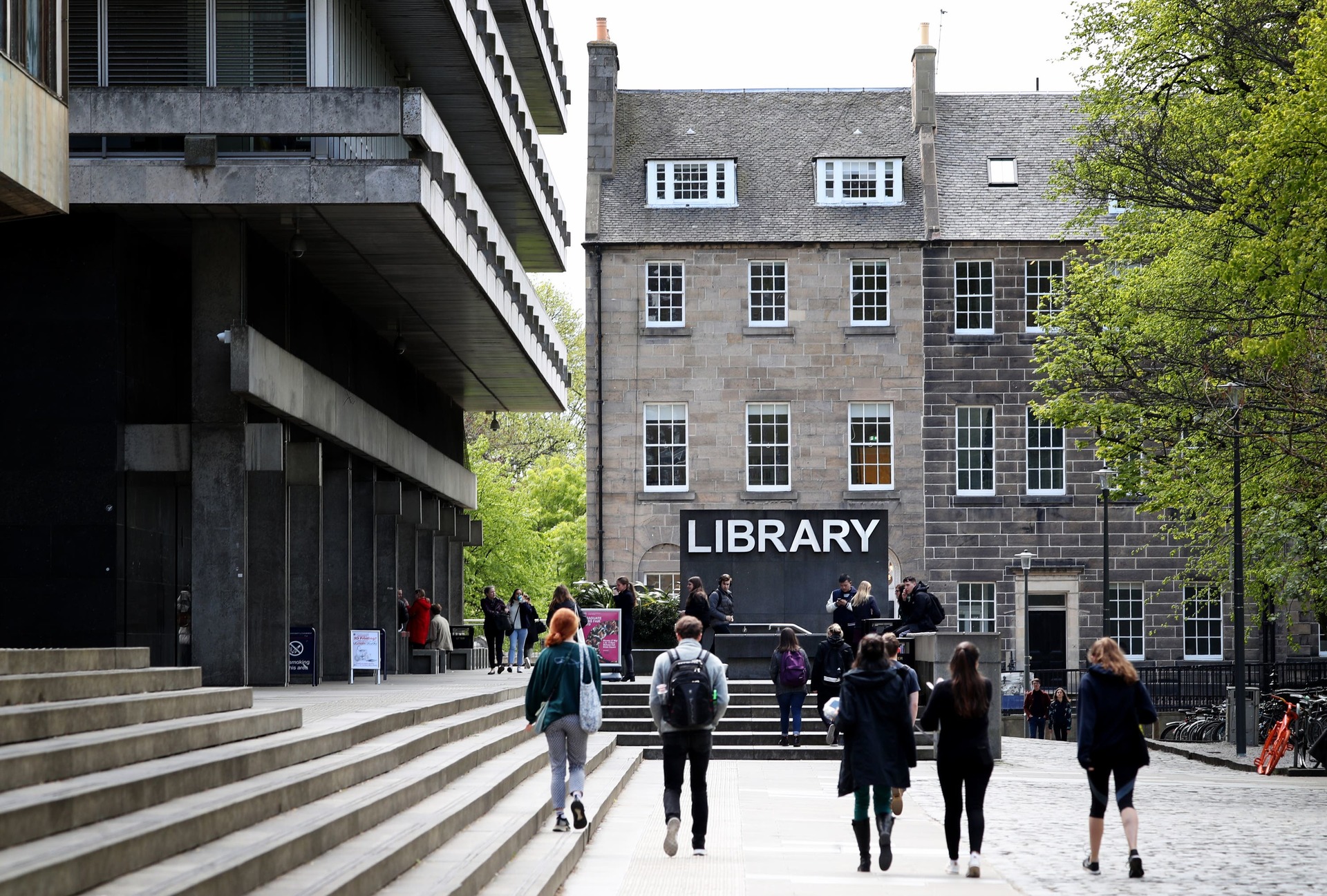Edinburgh is the most expensive place in the UK for students to live once again, new data has revealed.
Average monthly rents for students in the capital have increased by 30% since 2022 – with the national average monthly rent now at £591.90 according to data in the Royal Bank of Scotland Student Living Index.
In Edinburgh, students have a monthly term-time income of £1,453, the lowest of all the cities ranked, while their total monthly spending stands at £1,072.61.
More than two in five (46%) students said they run out of money before the end of the semester.
Students in Edinburgh are working more in part time jobs and it is the only city which has seen an increase in the part-time working hours of students when compared to 2022.
London remains the most expensive city in the UK for students to rent, with an average cost of £840.30 per month.
The index takes account of student income and living costs to calculate a score for university towns and cities across the UK.
The Royal Bank Student Living Index surveyed 3,052 students to determine the most affordable place to study. The survey takes into account how much students spend on going out and the income they earn from part-time work.
Supermarket spend continues to be the second biggest outlay for students outside of rent, with monthly spend seeing a sizeable jump. It’s up by 44% year-on-year, rising to £109.57 each month.
In contrast to Edinburgh, Bournemouth tops the list of UK cities as the most affordable, taking the top spot from Cardiff.
 PA Media
PA MediaHigher-than-average term-time incomes contributed to Bournemouth being named the most affordable student location.
The average term-time income for students in the city sits at £3,296.64, the second highest of all the cities surveyed.
They spend an average of £1,225.05 in total – however this is the second highest of all the cities in the Student Living Index.
In comparison to other cities, just over seven in ten (73%) students use their loan as their primary source of income.
London is now the most expensive place for a pint, with students expecting to pay £5.51 per drink, followed by Cambridge with an expected average cost of £5.07. This contrasts with Lancaster, where students can expect to pay just £3.81.
Nearly half of students (46%) have found themselves running out of money by the end of term – up from 35% in 2022. Almost one in four students (24%) said they found managing their money stressful – an increase of 29% compared to last year. This is most pronounced in Bournemouth.
In a sign that the cost of living squeeze is starting to hit home, students are spending an average of 24% less on going out than the previous year.
Some 40% felt their university offered no support to help them with the cost of living crisis, up from a quarter in 2022. Bournemouth had the highest number of students who felt they had no support from their university at 58%, compared to 16% of students in Lancaster.
Nine in ten students (90%) said they had made changes to their lifestyle in order to live within their budgets. That number jumps to 96% in Glasgow, Bournemouth and Cardiff.
Reducing the number of items bought online is the biggest change that students have made to live within their budgets in the last academic year, at 67%.
While 51% of students said they’d reduced the number of nights out they go on. More than three in ten (34%) said they had reduced the number of meals they eat per day.
While the majority of students haven’t considered leaving or ending their course early due to financial difficulties, it is something on their minds.
One in five (21%) said they had considered it but would find a way to manage, while 29% said it was a concern for them.
Jaimala Patel, head of Royal Bank of Scotland Student Accounts, said: “An increased reliance on student loans and double digit increases in spending on food shopping and rent is having a real impact on student finances.
“There are some reassuring signs that students feel far more comfortable budgeting than in previous years, and they are taking steps to live within their means.
“We provide a range of tools to help students, including spend categorisation in our mobile app and a Round Ups tool to help develop a strong savings habit.”
Follow STV News on WhatsApp
Scan the QR code on your mobile device for all the latest news from around the country






























